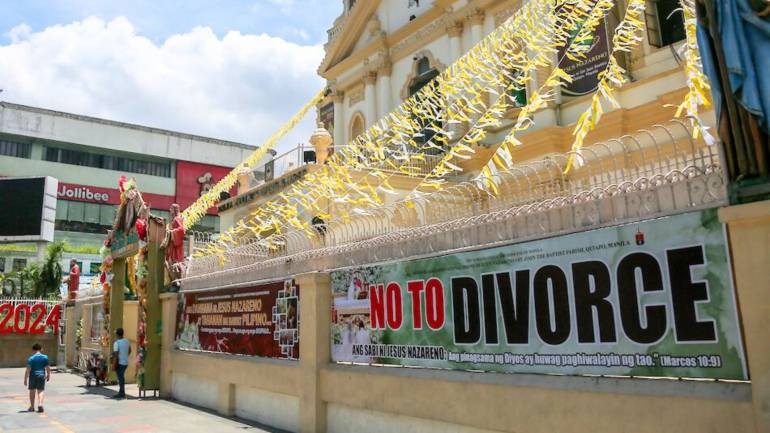Philippine bishop reiterates Church’s opposition to divorce bill in Pastoral Statement

In a recent pastoral statement issued by the Roman Catholic Diocese of Cubao, Bishop Honesto F. Ongtioco reiterated the Church's steadfast opposition to the proposed divorce bill currently being deliberated in the Philippine legislature.
Released on June 26, 2024, the statement emphasizes the sanctity of marriage and urges the faithful to consider the profound implications of legalizing divorce.
“To allow the dissolution of a valid marriage is to rob us of an image of absolute love that values each person regardless of our own mistakes and shortcomings,” Bishop Ongtioco stated.
Bishop Ongtioco's message highlights marriage as a sacrament with deep spiritual and social significance, drawing on theological foundations to underscore the unbreakable bond it represents.
“To allow divorce is to remove this image of love which reminds us that we are loved beyond measure based on who we are and that we do not need to prove we are lovable,” he added.
The pastoral statement also addresses the detrimental effects of divorce on families, particularly children, referencing research on the challenges faced by children of divorced parents.
“We have to be wary of the effects of divorce on the family. Research has shown that divorce has an adverse effect on a child's educational performance and a reduction in the time, energy, and financial resources for parenting,” the bishop cited.
Bishop Ongtioco described the intensity of the effect of divorce as “children of divorced parents suffer more than children who experienced a parental death.”
Moreover, the statement clarifies that “the Church never supported spousal abuse.” Instead, the church supports legal separation by mentioning that, “in cases where there is danger of harm, there is always the option for legal separation and annulment.”
Bishop Ongtioco also highlighted the Church's efforts to support victims of abusive marriages, noting, “We have religious congregations which support women in these cases. Let me affirm that the preservation of the sanctity of marriage as an institution is as important as the welfare of all people, especially those abused.”
The statement challenges the notion of multiple chances at love through divorce, referencing studies showing that “in the United States, 60% of second marriages end in divorce, while 73% of third marriages suffer the same fate. Rather than provide another chance at love, divorce often leads to more pain. Divorce sends the signal that fulfillment and happiness are based on our human relationships rather than a deeper relationship with God, who loves us unconditionally.”
Rejecting the argument that the Philippines is outdated for not allowing divorce, the statement cites moral principles and asserts that the goodness of a measure is determined not by majority practice but by its alignment with the Absolute Good, God.
The Diocese of Cubao is calling on the faithful to voice their opposition to the divorce bill and to pray for the enlightenment of lawmakers, emphasizing the potential harm of the bill to the moral fabric of society and the welfare of Filipino families.
Radio Veritas Asia (RVA), a media platform of the Catholic Church, aims to share Christ. RVA started in 1969 as a continental Catholic radio station to serve Asian countries in their respective local language, thus earning the tag “the Voice of Asian Christianity.” Responding to the emerging context, RVA embraced media platforms to connect with the global Asian audience via its 21 language websites and various social media platforms.














